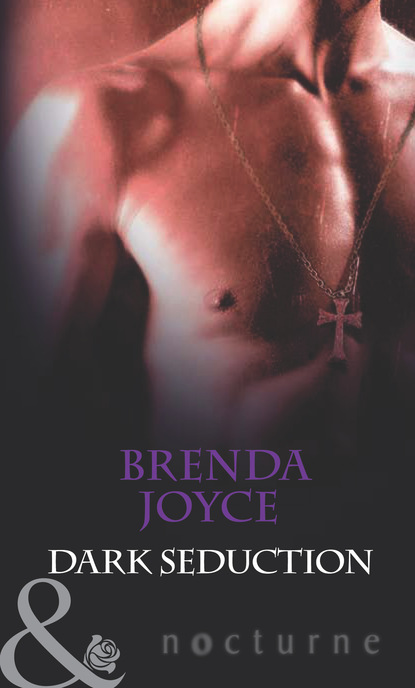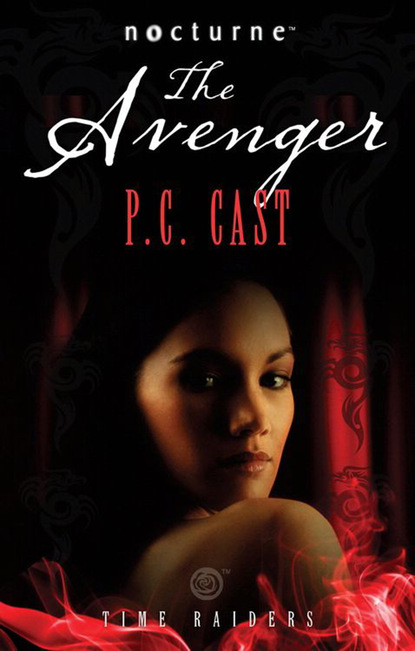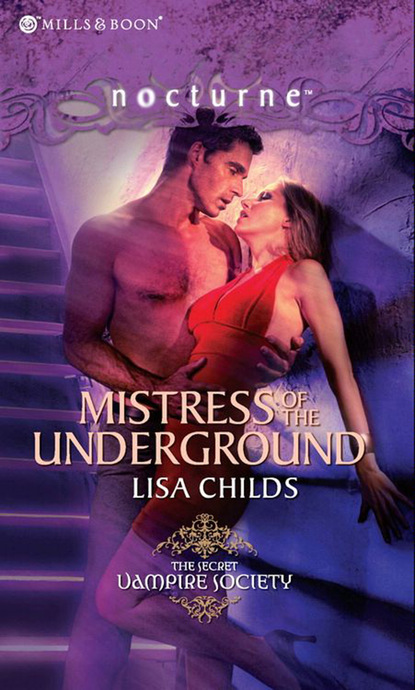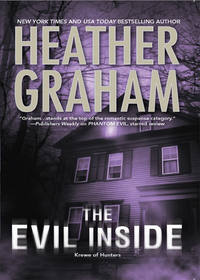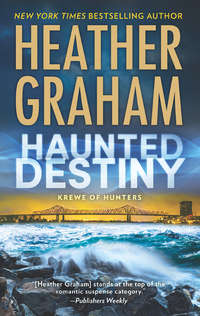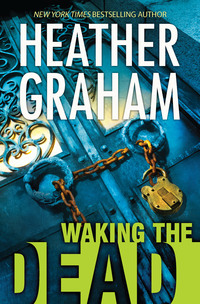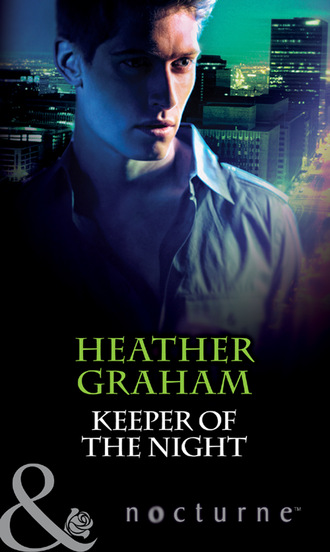
Полная версия
Keeper of the Night
She realized, looking at him, that he was exceptionally godlike. She was surprised, actually, that he bothered with small theater at all. He would have been great in a Greek classic, a Viking movie or a sword and sorcery fantasy. He was lean, but she knew that he was strong—and would look amazing without a shirt.
Then again, he’d announced that the play was going to turn into a major movie. Maybe he was sticking with it for the stardom it might bring.
“No nightcap,” she said. “I’m simply ready to go home.”
“Perhaps you’ll consider letting me buy you that apology another time?”
“Doubtful,” she assured him.
He pulled a card from his pocket and handed it to her. “Well, be that as it may, you really should come see the show.”
“Thank you, but I really don’t enjoy a mockery being made of my—my charges,” she told him.
He leaned closer to her, and the teasing, flirty smile left his face. He almost appeared to be a different person: older, more confident and deadly serious.
“No, you really should come see the show,” he said. “My number is on the card, Miss Gryffald. And I’m sure you know L.A. well enough to find the theater.”
He turned and walked out the door, nearly brushing the frame with the top of golden head.
Puzzled, she watched him go.
Hugh appeared just then. “Still here? I’m impressed,” he said.
“I’m leaving, I’m leaving,” she told him.
“I’ll see you tomorrow. And be on time.”
The man could be extremely aggravating. Werewolf Keepers were often like that, she had discovered. But then, the more experienced a Keeper was, the more he or she often took on the characteristics of a charge to a greater or lesser degree. She suspected that Hugh could become a wolf at the drop of a hat.
With her precious Fender in hand, she left the café. She heard Hugh locking the door behind her.
She headed to the ten-year-old Volvo that her uncle had left for her use, set her guitar in the trunk and started off down the street. Her song really hadn’t been half bad. “Hollywood, oh, I hate Hollywood,” she sang as she drove.
Brodie nodded to the attendant on duty and proceeded down the hallway of the morgue, past rooms where dozens of bodies in various stages of investigation were stored.
That was one thing about L.A. that wasn’t so good. The city was huge, and the number of people who died on the streets, many of them nameless and unknown, was high. Possibly even sadder were the ones whose names were known—but whose deaths went by unnoticed and unmourned.
Of course, the morgue also housed the remains of people who were known and loved—but who had died under circumstances that ranged from suspicious to outright violent.
That night, however, he passed by the autopsy rooms, remembering all too clearly the one he’d entered when he was sixteen, a room filled with corpse after corpse wrapped in plastic shrouds—so many dead. His father had arranged it after discovering that Mac had left a party after drinking. Luckily he had only creamed the garage door. But it might have been a person, and his father had made sure he knew what the consequences could have been.
He reached a door marked Dr. Anthony Brandt, Senior Pathologist.
Tony undoubtedly knew that he was coming. Tony knew a lot. He had an amazing sense of smell that had served him well as a medical examiner. He could smell most poisons a mile away.
Before Brodie could tap on the door, Tony had answered it. “I was expecting you tonight,” he said.
“Oh?”
“We’ve gotten another body that I think belongs to your killer.”
“Where did he leave his mark this time?” Brodie asked.
Tony just looked at him, ignoring the question. “You still doing the show?” he asked.
“Yep.”
“I saw that the cast included a Mac Brodie. That’s you, I’m assuming. Not much of an alias,” Tony said.
“None of the other actors actually know me. Being Mac Brodie instead of Brodie McKay works all right—if anyone looks me up, the captain has made sure that they’ll find my online résumé and all the right information. Makes it easier if someone who does know me calls me either Mac or Brodie.”
Tony mused on that for a minute. “You’re not the only one going by a stage name, are you? I noticed a Jack Hunter in the credits.”
Brodie shrugged. “You’re right—that’s Hunter Jackson. Obviously the cast and crew know who he really is—they’re just sworn to secrecy.”
“So he is the well-known director?”
“Yes. The play is his baby, really. He found the script and decided to produce it, then sell the film rights. The play was written by a friend of his, our stage manager. Name’s Joe Carrie. Nice guy, about forty—and definitely human.”
“So you don’t think he’s our murderer?” Tony asked.
Brodie shook his head. “No, and there’s no proof the killer’s even involved with the play itself. He could just be a theater buff. But the play does seem a solid place to start, at least. So, anyway, what makes you think our killer is responsible for this corpse?”
“Exsanguination, for one thing.”
Tony was an interesting guy; he looked like what you would expect a werewolf to look like in human form. He was big and muscular, with broad shoulders and an equally broad chest. He had a head full of thick, curly light brown hair, and when he was on vacation, he grew a beard that would do Santa proud.
“And?”
“There’s never anything obvious about the marks he leaves behind, but this time it looks like they’re on the thigh. This is one clever vampire. He makes sure that he disposes of the bodies in a way that will lead to the most decay and deterioration in the shortest time.”
“Want to show me the body?” Brodie asked.
“I thought you’d never ask.”
Tony led the way down the hall to one of the autopsy rooms.
It was a large room, big enough for several autopsies to take place at one time. Now, however, the room was quiet and dim, and only a single body lay on a gurney on the far side of the room.
Strange, Brodie thought. He was Elven, although the Elven were pretty damned close to human in a lot of ways, maybe more human than they wanted to be. And he was a detective, often working undercover in some of the grittiest neighborhoods of a tough town where bluebloods crossed paths with derelict drug dealers. But despite both those things, he’d never gotten over the strange sensations that nearly overwhelmed him at an autopsy. Life—flesh and blood—reduced to sterile equipment and the smell of chemicals on the air. The organs that sustained life ripped from the body to be held and weighed and studied. It was just somehow…wrong, despite the fact that the work done here was some of the most important that could be done for the dead and the living both.
Tony pulled down the sheet that covered the victim, and Brodie stared first at the face, his jaw hardening.
“You’ve seen him before?”
Brodie nodded. “It’s hard to tell, really, the body is so decomposed. But I think I recognize him. I think he was at the first performance of the show.”
“Any idea who he is?” Tony asked.
“No, he was just a face in the crowd. Second row center. Have you gotten a hit off dental records? What about fingerprints?”
“Look at the hands,” Tony told him, pulling the sheet down farther.
Brodie did, and he felt his stomach lurch sharply, even though he’d expected the scene that met his eyes.
The killer had chopped off the fingers.
Tony nodded toward the body. “Just like the other two. And here’s what I found—you’ll need that magnifier there.” He pointed.
Brodie picked up the small magnifying glass that Tony had indicated, then walked down to join Tony by the foot of the gurney. Tony slipped on gloves and moved the thigh. The skin was mottled and bruised looking.
“No lividity?” Brodie asked.
“The discoloration and bloating you see are because he was dumped in a pond out by one of those housing projects they never finished off Laurel Canyon—suspiciously near your theater,” Tony said. “But use the magnifying glass and check out his thigh. There are marks. They’re tiny, and they’re practically buried in swollen flesh, but they’re there. And, of course, the body was pretty much drained of blood. There is a slash at the throat, but despite the damage and decay, I believe it was postmortem.”
Despite his feelings about autopsy and corpses, Brodie donned gloves, shifted the dead man’s leg and peered through the microscope, searching for the telltale marks, then looked up at Tony.
“Third body in two weeks with the same marks and same method of disposal,” Tony said.
“And I know I’ve seen this one at the theater,” Brodie said wearily.
“And the killer dumped them all close to that theater,” Tony told him. “Your captain seems to have been on the mark.”
Brodie nodded. “Yeah, without his insight the victims might have fallen on to the big pile of cold cases, with no leads to go on. The captain is…a smart guy.”
“Guess that means you stay undercover,” Tony said. “Too bad L.A.’s three best Keepers have been called to council. This is one hell of a mess.”
Brodie thought about the stunning young auburn-haired woman with the big green eyes he had seen at the café. She’d rushed to what she thought was a crime scene like a bat out of hell. She’d been ready, he thought. But she wasn’t ready enough. She loved her music too much. In a way, he understood. It was difficult to realize that you could—had to—lead a normal life, then let it all go to hell when necessary.
He wished to hell that Piers Gryffald, Rhiannon’s father and the previous Keeper of the Canyon vampires, was still there.
But he wasn’t.
And the body count was rising.
Driving in L.A. was not like driving in Savannah. People in Savannah moved at a far more human pace. Everyone in L.A. was in a hurry, which seemed strange, because often they were hurrying just to go sit in a coffee shop and while away their time, hoping to make the right connection. Some hopefuls still believed that they could be “discovered” in an ice cream parlor, and God knew, in Hollywood, anything could happen, even if the statistics weren’t in their favor.
At least coming home—to the house that had been her old summer home and was now her permanent base—was appealing. She had to admit, she loved the exquisite old property where she lived with Sailor and Barrie. Each of them had her own house on the estate—the compound, really—that had been left to their grandfather, Rhys Gryffald, by the great Merlin, magician extraordinaire, real name Ivan Schwartz.
Somehow during his younger years, Merlin had learned about the Keepers. He’d longed to be one, but only those born in the bloodline, born with the telltale birthmark indicating what they were destined to become—werewolf Keeper, vampire Keeper, shapeshifter Keeper and so on—could inherit the role. Since he couldn’t be a Keeper, Ivan did the next best thing: he befriended one. In fact, he had become such good friends with Rhiannon’s grandfather that he had first built him a house on the property, opposite the guesthouse that already existed, and then, on his death, Merlin had willed the entire compound to him.
Good old Ivan. He had loved them all so much that he had never actually left.
The House of the Rising Sun, the main house, loomed above her as she drove along the canyon road, and she had to admit, it was magnificent. It wasn’t as if she hadn’t known the house all her life. Her grandparents had three sons—her father and her two uncles—and her dad had been mentored by a Keeper in Savannah, which had turned out to be a very good thing, since he’d fallen in love with her mother, a musical director for a Savannah theater. But then he’d returned to L.A. and assumed responsibility for the Canyon vampires—and she shouldn’t have had to take over for another zillion years, give or take. She had grown up in Savannah, where her mother had kept her job, and her father had traveled back and forth on a regular basis. Despite the distance, her parents enjoyed one of the best marriages she had ever seen. And she’d grown close with her L.A. family, because she’d spent summers and most holidays there at the House of the Rising Sun. Sailor had always lived in the House of the Rising Sun itself, except for her acting stint in New York.
Barrie was now in Gwydion’s Cave, the house Merlin had built for their grandfather, and she herself had the original 1920s guesthouse, called Pandora’s Box.
Pandora’s Box. A fitting name for all of L.A. in her opinion.
The main house really was beautiful! Regal, haunting and majestic, high up on a cliff. The style was Mediterranean Gothic, and it seemed to hold a thousand secrets as it stood proud against the night sky.
As a matter of fact, it did hold a thousand secrets. All right, maybe not a thousand, but a lot of them. Like the tunnels that connected all three houses. And the little red buttons that looked like light switches and were set randomly around the three houses. Little red buttons that set off alarms in all three residences, in case someone in any one of them needed help.
The property could only be reached via a winding driveway that scaled the cliff face, and the entire property was protected by a tall stone wall. She had to open the massive electric gate with a remote she kept in her car or else buzz in and hope someone was home to answer.
Grudgingly, she had to admit that she loved the House of the Rising Sun and living on the estate wasn’t any kind of punishment. It was still breathtaking to watch the gate swing wide to allow entry to the compound, and then awe inspiring to see the beautiful stone facades of the houses appear.
Sometimes she wondered why Merlin had bothered with the wall. The Others that the Keepers were assigned to watch weren’t the type to be stopped by walls or gates. But then again, Merlin had lived in the real world with its real dangers, too, as did they—although calling the surreal world of Hollywood “real” seemed like a contradiction in terms.
She clicked the gate shut behind her and drove forward slowly, noting that Barrie’s car was parked on the left side of the property, while Sailor’s, unsurprisingly, was not. Since there was no garage—all the available land had been used for the houses—she assumed that if Sailor’s car wasn’t there, neither was Sailor herself. Barrie was determined to save the world, not only by overseeing the shapeshifters but also by practicing the kind of hard-hitting journalism that could bring about change in L.A., if not the world, so, she tended to keep reasonable hours. Sailor, Keeper of the Elven, was determined to rule the world from the silver screen, which meant she was likely to be out and networking at all hours.
Still thinking about the way the Elven had handed her his card and told her that she should see the play, Rhiannon pulled into her usual parking place and exited the car, bringing her guitar with her as she headed for Pandora’s Box. Slipping her key into the lock, she shoved a shoulder wearily against the door, stepped in and flicked on the lights.
She was tired. And she worked in a café, for God’s sake. She should have brought home a gourmet tea to sip while she unwound, but after only a few minutes with Mac Brodie she had been too disconcerted to think of it.
She set her guitar case in its stand and headed into the kitchen. There she quickly brewed a cup of tea and added a touch of milk, then headed back out to the living room to sink into the comfortable old sofa and lean back. She closed her eyes.
“No, you really should come see the show….”
There was a tap at her door. She listened for a minute without rising. She was tired. And frustrated. And, she had to admit, unnerved.
An Elven had come to her and told her that she needed to see a vampire play.
Why?
It was just a play, a pretense. No vampires were out there killing people. Or other vampires, or anyone else. If they were, she would have heard about it on the news, wouldn’t she?
The tapping became more persistent. Rhiannon forced herself to rise. It could only be one of a very few people at this time of night. Maybe Sailor had come home early and might listen to the story of Rhiannon’s night and give her some advice.
It wasn’t Sailor or even Barrie who stood at her door. Merlin had come by to visit. “I hope I’m not disturbing you?” he asked anxiously.
Yes, you are, she almost said, but she refrained. Merlin was a ghost. If he wanted to, he could be anywhere—perched on the end of the grand piano in the living room, day and night, if he felt like it. But he was a polite ghost, one who had learned to manifest corporeally. He had mastered the art of knocking on doors to announce his presence and behaved at all times as if he was not only living but a gentleman. He had maintained his old room in the main house, and he was careful to be the best possible “tenant.” They all loved him, but Sailor, in particular, was accustomed to living with him—both before and after his death.
They had all sobbed at his funeral—until they realized that he was standing right there with them, comforting them in his new and unearthly form.
“Come in, Merlin, please,” she said. “Have a seat. My home is your home, you know. Literally,” she added with a warm smile.
Merlin had always been so good to her family, and it had been a two-way street. Her grandfather had saved him from jail when a shapeshifter had impersonated him and perpetrated several lewd crimes while posing as the noted magician. Her grandfather had been the shapeshifter Keeper and had worked with a friend on the police force—a werewolf—to prove that someone had been impersonating Merlin, and ensure that the proper person was caught and punished.
She stepped back from the door, sweeping a hand wide to indicate that he should join her.
Merlin stepped inside, looked around and sighed with happiness. “I’m so glad that you girls are living here,” he told her.
He walked to the sofa and sank onto it, looking like a dignified and slightly weary old man. Which was exactly what he had been when he’d died. He’d lived a good, long life that had left him with a charmingly lined face, bright blue eyes and a cap of snow-white hair. Having him around really was like having a grandfather on the property.
“And we’re glad to be here,” Rhiannon said.
What a liar she was, she thought. She’d been about to get her big break when she’d been called home and been told that she was an adult and the good times were over. Her responsibilities had crashed down upon her with no time for her to think about it, to say yes or no. Suddenly all three Gryffald brothers were being sent overseas and their daughters were taking their places, and that was that.
Of course her father and her uncles hadn’t been given a chance to say yes or no any more than she and Sailor and Barrie had.
The brothers had been summoned to serve on the new high council of Keepers at the Hague, a council that would act as a worldwide governing body for the Otherworld and the Others.
“Are you fitting in okay?” Merlin asked her, sincere concern in his voice.
“Of course.” She forced a smile. None of this was Merlin’s fault. Or her father’s. He’d tried to be so fierce when he’d talked to her. You are the Keeper for the vampires, Rhiannon. They are powerful and deadly, and yours is a grave responsibility.
At the time, of course, all she’d seen was that her band was finally getting a real break—and she wasn’t going to be there to experience it.
Merlin nodded thoughtfully. “I was just wondering…I mean, this is L.A. It’s not as if there isn’t plenty of murder, mayhem and scandal on a purely human level.”
“Merlin, what are you talking about?” she asked wearily.
“You might want to talk to Barrie. There have been a few mysterious deaths lately.”
Something hard seemed to fall to the pit of her stomach. This couldn’t involve her. Not already.
“Mysterious deaths?” she asked.
Merlin nodded. “They haven’t gotten a lot of coverage, because none of them have been on one of those trashy reality shows or even made Hollywood’s D list. These poor people have gone from this world unnoticed and unknown.”
“Like you said—this is L.A.,” Rhiannon said, frowning.
“Well, speak to your cousin, because she’s got contacts who have told her a few things. There have been three similar deaths, and all three corpses were discovered in a similarly advanced state of decay.”
“And?” She whispered the word, as if that could keep her fears from becoming real.
“The cops have been trying to keep the details out of the papers, but someone leaked one important fact,” Merlin told her grimly.
“And that fact is…?” she asked.
He winced. “I’m sorry, Rhiannon. The corpses were almost bone dry, sucked dry of…”
“Of?” she asked, even though in her heart she knew the answer.
“Blood,” Merlin said gravely. “Sucked dry of blood.”
Chapter 2
To a lot of people in L.A., it wasn’t all that late.
But to Rhiannon, after her wretched shift at the café, nothing sounded more welcome than her bed and a pillow.
Still, she knew she wouldn’t sleep if she didn’t try to talk to Barrie, though with any luck Barrie would already be in bed and wouldn’t answer the knock at her door.
To Rhiannon’s dismay, Barrie was up.
A single light was on in Barrie’s living room, where she had been sitting on her sofa and working. Her laptop was sitting on a pile of newspapers and magazines.
Barrie definitely tended to be a workaholic.
She had a good job in her chosen field, but she still wasn’t where she wanted to be in her career. At the moment she mostly got stories that ran under headlines—often handed to her whether she liked them or not—like “West Hollywood Woman Reveals Secret Behind Amazing Weight Loss.”
Barrie was a crusader; she had strong opinions on right and wrong. She wanted to be where the action was. She wanted to get off the crime beat and into issue-based investigative journalism, but her Keeper duties would always have to take precedence, and that was a problem.
Rhiannon sympathized with her. She knew how difficult it was, trying to have a real career and deal with this sudden shift in purpose.
“Hey, I didn’t expect to see you tonight.” Barrie grinned and rolled her eyes. “Merlin, maybe—sometimes he forgets the time. Thought you’d come home exhausted and ready to crash.”
“Am I interrupting?” Rhiannon asked her.
“No. Yes—but it’s all right, honestly.” She sighed. “I’m trying to come up with a story and an angle no one’s thought of yet, so I can take it to my boss and maybe—finally—get a green light.”
“Good luck,” Rhiannon offered.
“So, how did things go at the café tonight?”
“They sucked. Totally sucked. Some actors staged a vampire attack right out front to publicize their play and nearly gave me heart failure—and in all the fuss my tip jar was stolen.”
“You’re right. That sucks. Want a cup of tea?”
“I just had one, but sure,” Rhiannon said.
Barrie led the way into the kitchen.
All three of their houses might have been curio museums, filled as they were with Merlin’s collections from a lifetime of loving magic—and the bizarre. The main house held the bulk of it, because it was so large, with five bedrooms upstairs, a grand living room and a family room that led out to the pool. Tiffany lamps were everywhere, along with Edwardian furniture, and busts and statues, and paintings that covered the walls. Pandora’s Box had a Victorian feel, with rich, almost stuffy furniture, and a collection of sculpted birds, with the largest being a magnificent gesso rendition of Poe’s raven. It also boasted a few of Merlin’s old coin-drop fortune-teller machines.


